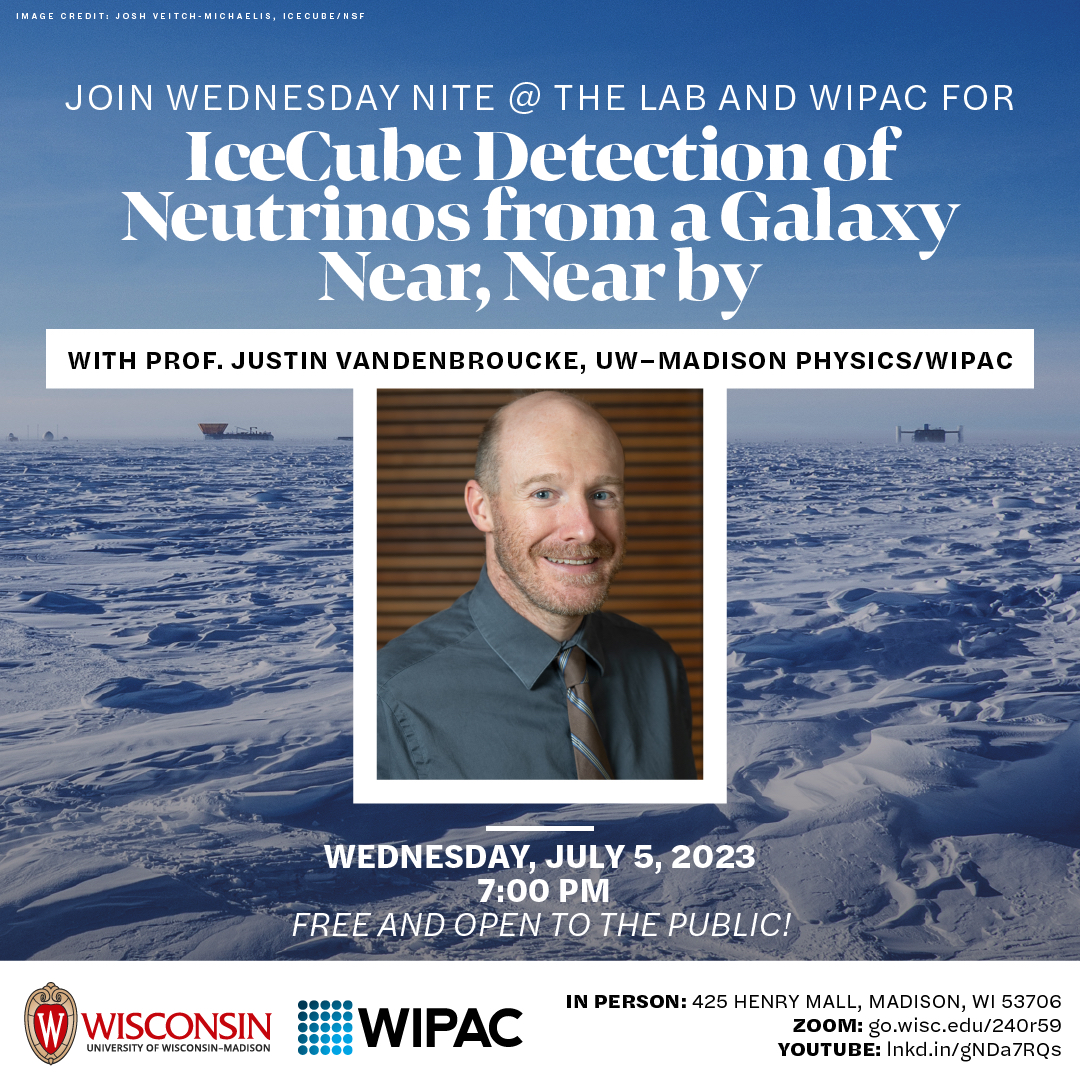
Year: 2023
Keith Bechtol, Victor Brar promoted to Associate Professors
Congratulations to Keith Bechtol and Victor Brar, who were both promoted to associate professors of physics with tenure!
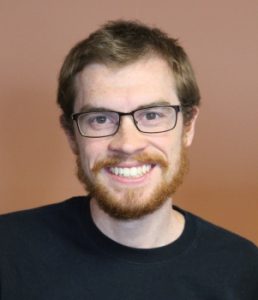
Bechtol is an observational cosmologist with research interests in dark matter and dark energy, using the whole Universe as a lab to understand the fundamental physics of nature. He is part of the Dark Energy Survey (DES) that has cataloged more 500 million galaxies and thousands of supernovae to understand the nature of dark energy. He and his group are also working on the construction and commissioning of the Vera C. Rubin Observatory in preparation for the Legacy Survey of Space and Time (LSST). LSST is expected to catalog more stars, more galaxies and more solar system objects during its first year of operations than all previous telescopes combined.
“Professor Bechtol plays a leading role in the Vera C. Rubin Observatory, which is now poised to enable a major leap in the data available for understanding the development of our universe,” says Mark Eriksson, Chair and John Bardeen Professor of Physics.
Bechtol was a co-convener of the DES’s Science Release Working Group for four years and a co-convener of the Milky Way Working Group for two years. He is now serving as Technical Coordinator for the LSST Dark Energy Science Collaboration. In 2022, he was selected to the Department of Energy’s Early Career Research Program. He also proposed and is the faculty lead for the physics department’s Thaxton Fellowship, whose goal is to provide more equitable access to physics research experiences for undergraduates.
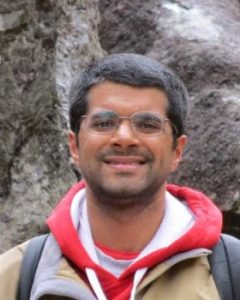
Brar, the Van Vleck professor of physics and a member of the Wisconsin Quantum Institute, is an experimental condensed matter physicist with a research focus on quantum materials and novel imaging techniques. His group works on developing metamaterials such as 2D materials for use in laser sailing or fabricating graphene structures for use in telecommunications. They also use scanning tunneling microscopy and scanning tunneling potentiometry to understand the physical and electrical properties of materials.
“The experiments performed by Professor Brar and his research team have enabled measurements of completely new regimes for electron transport in 2D materials,” Eriksson says.
Brar was awarded a Moore Inventor Fellowship in 2018, a Sloan Fellowship in 2021, and a National Science Foundation CAREER award in 2023. He has additionally received two UW–Madison Research Forward awards.
Longtime physics staff member Ed Slotten has passed away
Ed Slotten, a longtime physics department staff member who retired in 2005, passed away June 1. He was 75.
Ed joined the department shortly after graduating from Madison Area Technical College and worked here for 34 years before retiring. He was both an accountant and a research program manager.
“Ed was a friend, colleague, and superbly supported the department through the good and bad times,” says emeritus professor Don Reeder. “I was here for almost all his 34 years and witnessed his outstanding service.”
Says professor Bob Joynt: “Ed took care of me for anything financial from when I arrived in 1986 until his retirement almost 20 years later. I never had to worry about anything — he always had it covered. He was the person I also went to talk to whenever I just felt like talking — sometimes sports, sometimes university stuff — didn’t matter. He was always a source of good cheer, wisdom, and fun. RIP, Ed.”
Professor Thad Walker adds: “I was interviewing in early 1990. I knew how important efficient purchasing was going to be to getting my experiments going quickly. I kept hounding Jim Lawler for details. Jim got tired of it, took me to Ed’s office, and asked Ed to have my reimbursement check ready later that morning. Ed’s delivery of said check shut me up. Ed was an excellent, efficient, and cheerful administrator.”
Ed was also a husband and father (he is survived by his wife, Debra, his daughter, Lisa, and his son, Scott), a passionate Badger and Madison-area high school sports fan, and a U.S. Army veteran.
Ed stopped by the department somewhat regularly even after his retirement, and his visits were always welcome. He will be greatly missed.
IceCube shows Milky Way galaxy is a neutrino desert
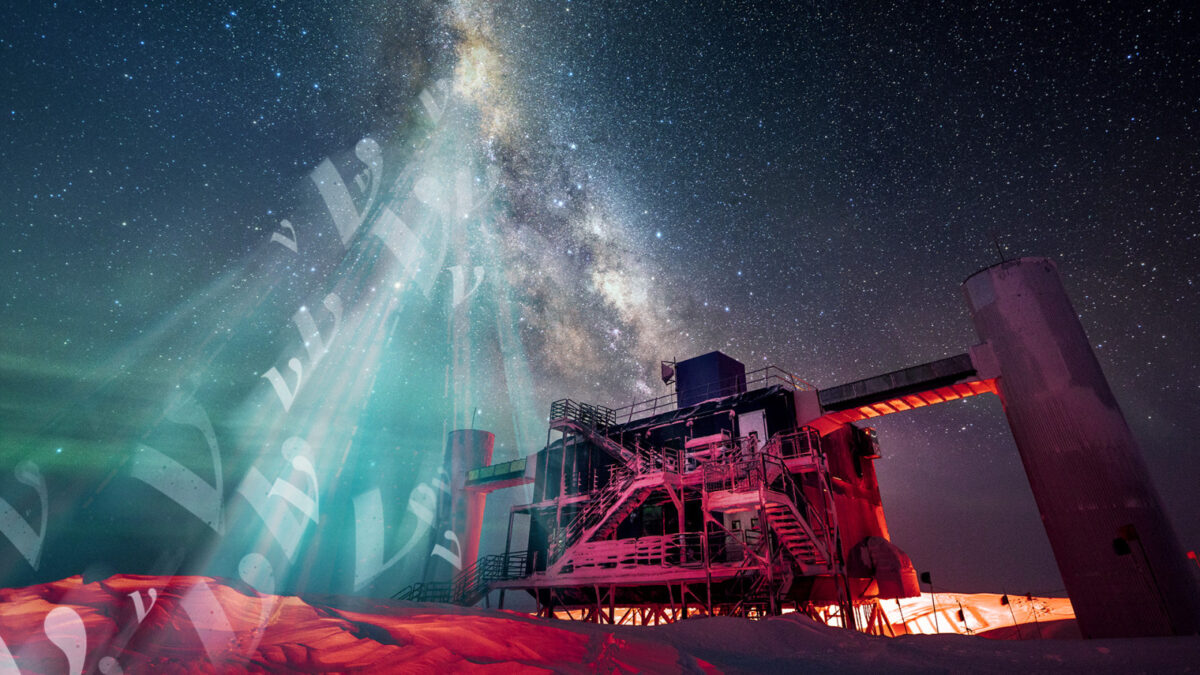
The Milky Way galaxy is an awe-inspiring feature of the night sky, dominating all wavelengths of light and viewable with the naked eye as a hazy band of stars stretching from horizon to horizon. Now,
In a June 30 article in the journal Science, the IceCube Collaboration — an international group of more than 350 scientists — presents this new evidence of high-energy neutrino emission from the Milky Way. The findings indicate that the Milky Way produces far fewer neutrinos than the average distant galaxies.
“What’s intriguing is that, unlike the case for light of any wavelength, in neutrinos, the universe outshines the nearby sources in our own galaxy,” says Francis Halzen, a professor of physics at the University of Wisconsin–Madison and principal investigator at IceCube.
The IceCube search focused on the southern sky, where the bulk of neutrino emission from the galactic plane is expected near the center of the galaxy. However, until now, a background of neutrinos and other particles produced by cosmic-ray interactions with the Earth’s atmosphere made it difficult to parse out neutrinos originating from galactic sources — a significant challenge compounded by relatively sparse neutrino production in general.
Undergraduates named 2023 Hilldale Fellows
Physics major Dhanvi Hiriyanna Bharadwaj has been named a 2023 Hilldale Fellow, working with Ramathasan Thevamaran in Mechanical Engineering. Astronomy-physics major Vicki Braianova, who is working with physics professor Peter Timbie, has also received the award.
The Hilldale Undergraduate/Faculty Research Fellowship provides research training and support to undergraduates at UW–Madison. Students have the opportunity to undertake their own research project in collaboration with UW–Madison faculty or research/instructional academic staff. Approximately 97 – 100 Hilldale awards are available each year.
Partnerships bring together UW–Madison quantum computing research, industry leaders
Two leading companies in semiconductor quantum computing are partnering with researchers at the University of Wisconsin–Madison, itself a long-time academic leader in quantum computing.
UW–Madison’s separate partnerships with Intel and HRL Laboratories are part of a first round of collaborations announced June 14 by the LPS Qubit Collaboratory (LQC), a national Quantum Information Science Research Center hosted at the Laboratory for Physical Sciences (LPS). Established in support of the National Quantum Initiative Act, LQC is facilitating partnerships between industry and academic and national labs to advance research in quantum information science.
“These collaborations are great examples of UW–Madison partnering with industry on the development of important technologies, in this case semiconductor quantum computers,” says physics professor Mark Eriksson, the UW–Madison lead on the partnerships.
Alex Levchenko honored with H.I. Romnes Fellowship
This post is modified from one originally published by the Office of the Vice Chancellor for Research and Graduate Education
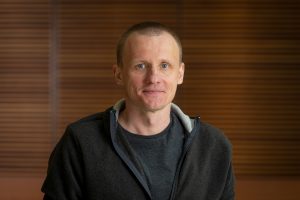
Physics professor Alex Levchenko was one of thirty-five of the University of Wisconsin–Madison faculty to be awarded fellowships from the Office of the Vice Chancellor for Research and Graduate Education for 2023-24. The awardees span the four divisions on campus: arts and humanities, physical sciences, social sciences and biological sciences.
“These awards recognize our faculty research, academic and outreach successes and provide an opportunity for continued development of their outstanding research programs,” says Steve Ackerman, vice chancellor for research and graduate education. “I’m grateful that we are able to recognize invest in these faculty in this way, and I look forward to seeing the results of their imaginative use of these funds.”
The awards are possible due to the research efforts of UW–Madison faculty and staff. Technology that arises from these efforts is licensed by the Wisconsin Alumni Research Foundation and the income from successful licenses is returned to the OVCRGE, where it’s used to fund research activities and awards throughout the divisions on campus.
Eighteen faculty, including Levchenko, have been honored with the H.I. Romnes Fellowships to recognize faculty with exceptional research contributions within their first six years from promotion to a tenured position. The award is named in recognition of the late WARF trustees president H.I. Romnes and comes with $60,000 that may be spent over five years.
Levchenko studies fundamental aspects of condensed matter physics with a focus on electronic phases of matter and quantum transport. Specific areas of expertise include superconductivity, topological order, and nanoscale systems such as graphene and other van der Waals materials. He is a Fellow of the American Physical Society and of the Alexander von Humboldt Foundation, and recipient of an early career grants from the National Science Foundation and the Binational Science Foundation. His teaching covers all levels of undergraduate and graduate education, and he serves on multiple professional review panels internationally.
Federal grants to 2 Wisconsin startups highlight UW’s leading role in fusion energy
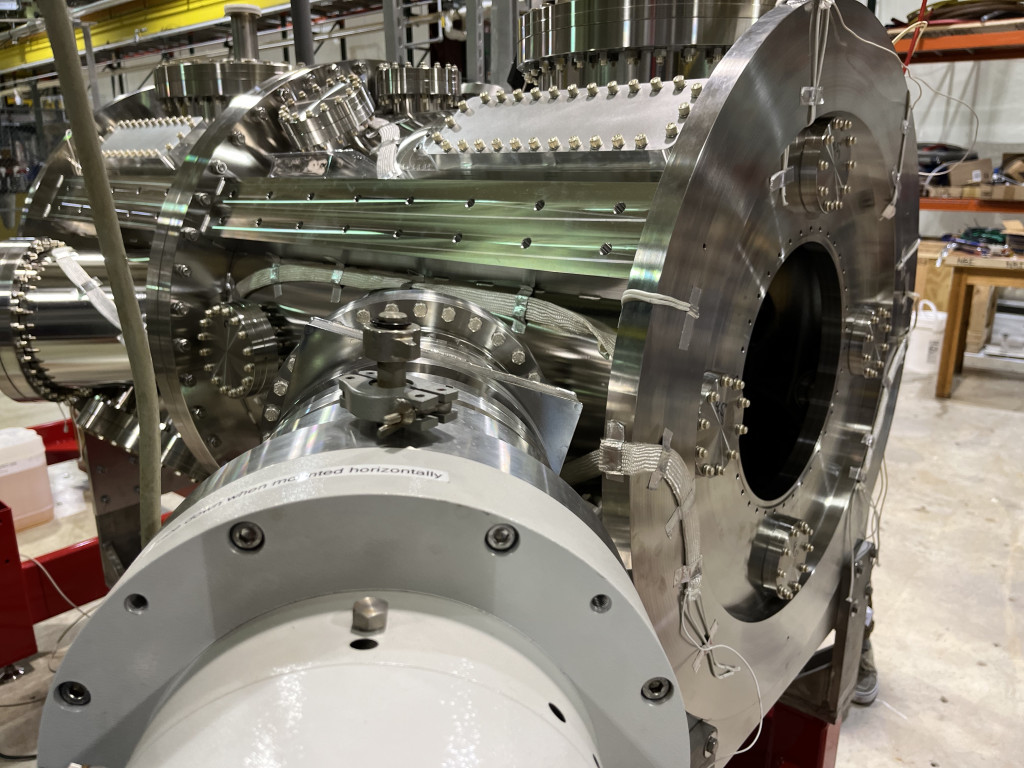
A pair of startups with University of Wisconsin–Madison roots — one spun out of Department of Physics technology — have received large federal grants to support their efforts to develop clean energy through fusion.
Realta Fusion and Type One Energy Group, both based in the Madison area, were two of eight ventures from across the nation that the U.S. Department of Energy selected for grants worth millions of dollars to support research and development of fusion energy technologies. Earth-based fusion energy, which seeks to mimic the nuclear fusion that powers the stars, could someday provide a source of clean, safe and virtually limitless power and heat.
UW–Madison has a reputation as one of the leading places in the world for plasma physics and fusion research, and local companies are emerging from that knowledge base. Match that to the deep expertise in manufacturing in the state and we have the key ingredients to make Wisconsin the global hub for fusion. — Physics professor and Realta Fusion Chief Scientific Officer Cary Forest
One-quarter of the companies chosen for this federal investment are based in Wisconsin, reflecting UW–Madison’s leading role in fusion research to generate renewable and reliable energy as the United States strives to reduce its reliance on fossil fuels.
“UW–Madison is creating valuable partnerships in this potentially transformative option for meeting the energy needs of future generations,” says Amy Wendt, associate vice chancellor for research in the physical sciences. “With growth in innovative public-private partnerships for fusion research, we are looking forward to building on UW’s strong history and growing global leadership in the science and technology that will enable the realization of fusion power.”
Both Realta Fusion and Type One Energy Group are pursuing fusion energy based on technologies pioneered by researchers at UW–Madison.
Realta is working to develop fusion energy and heat for industrial applications via a compact but powerful magnetic mirror as an early step toward larger-scale fusion applications. The company was spun out of a federally funded research project housed in the Department of Physics and led by physics professor Cary Forest.
“Wisconsin is extremely well positioned to lead in the commercialization of fusion,” says Forest, who co-founded Realta and serves as its chief science officer.
Astronomers Discover Planets in NASA Kepler’s Final Days of Observations
This story was originally published by NASA
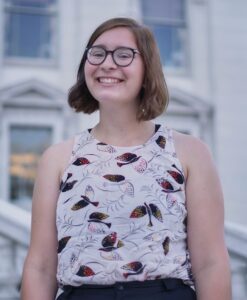
A team of astrophysicists — including a UW–Madison physics major — and citizen scientists have identified what may be some of the last planets NASA’s retired Kepler space telescope observed during its nearly decade-long mission.
The trio of exoplanets – worlds beyond our solar system – are all between the size of Earth and Neptune and closely orbit their stars.
”These are fairly average planets in the grand scheme of Kepler observations,” said Elyse Incha ’23. “But they’re exciting because Kepler observed them during its last few days of operations. It showcases just how good Kepler was at planet hunting, even at the end of its life.”
A paper about the planetary trio led by Incha was published in the May 30, 2023 issue of the journal Monthly Notices of the Royal Astronomical Society.
Victor Brar, Wisconsin Center for Semiconductor Thermal Photonics earn UW Research Forward funding
Sixteen projects were chosen in the third round of UW–Madison’s Research Forward competition, including one from Physics.
The Wisconsin Center for Semiconductor Thermal Photonics will explore fundamental science at the intersection of semiconductor technology and radiative heat transfer. This cross-disciplinary center will explore thermal radiation in unconventional semiconductor materials, in nanostructures, and in extreme conditions, and achieve control of the directionality and timing of radiative heat transfer at unprecedented scales. New technologies will emerge from these fundamental studies, including low-cost spectrometers, imaging and ranging, and energy harvesting and active cooling.
The project is led by ECE associate professor and physics affiliate professor Mikhail Kats as Principal Investigator, with Physics associate professor Victor Brar as one of the co-PIs.
Research Forward, a competition sponsored by the Office of the Vice Chancellor for Research and Graduate Education (OVCRGE), is intended to stimulate and support highly innovative and groundbreaking research at UW–Madison.
The initiative is supported by the Wisconsin Alumni Research Foundation (WARF) and will provide funding for 1–2 years, depending on the needs and scope of the project.